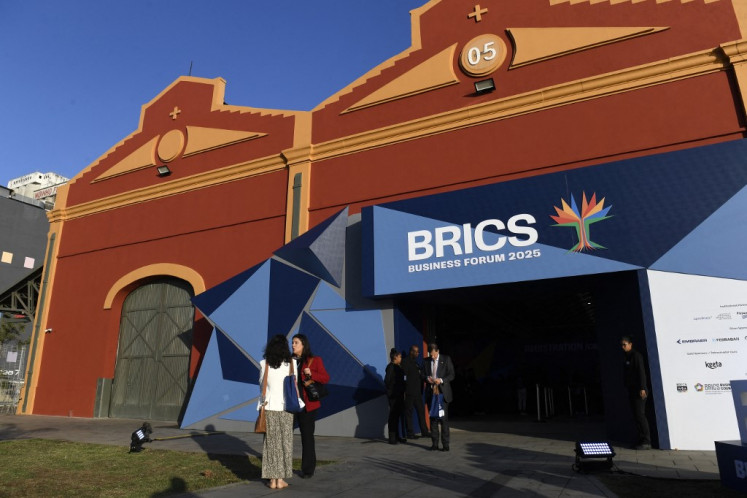Popular Reads
Top Results
Can't find what you're looking for?
View all search resultsPopular Reads
Top Results
Can't find what you're looking for?
View all search resultsTo counter hoaxes, attack ‘animalistic side’, scientists say
A scientist argues that stressing on literacy may be counterintuitive in the war on the fake news epidemic that Indonesia has been waging.
Change text size
Gift Premium Articles
to Anyone
“Did you know that being handsome is a hoax?" biologist Berry Juliandi asked his audience at a recent media gathering. "A strain of a parasite named Toxoplasma gondii makes people like Superman look handsome."
The parasite, he explained, alters an adult male's behavior to attract females for sexual relations.
The Superman in Berry's anecdote has a distinct mission: To raise awareness that the tendency of making up stories can be retrieved from the smallest parasite to the biggest human.
A member of the Indonesian Academy of Young Scientists, Berry argues that because of the nature of hoaxes, stressing on literacy may be counterintuitive in the war on the fake news epidemic that Indonesia has been waging.
The problem is, he said, that people have the instinct to lie for survival. Tactics may range from being polite to denying mistakes.
In fact, people have the ability to distinguish between fake and genuine information. But this is not easy because amygdala, a brain section that detects fear, disrupts the analytical function of another section.
Amygdala is stimulated ahead of the cognitive function of the brain’s frontal lobe. This means that people tend to act impulsively before getting the chance to analyze information. As a result, they can be swayed by the creators of disinformation.
In real life, this was made evident by a 2017 survey by the Centre for Strategic and International Studies that found 53.7 percent of respondents were unwilling to accept a candidate whose religion was different from theirs.
People's fear that an election would be won by a candidate from another religion was exploited by the misinformation creators for their political gain.
“People who create hoaxes are creative. For instance, if he knows [his audience] likes the word Allahu Akbar [God is great], he will start by saying ‘Allahu Akbar, Islam is indeed a righteous religion’,” Berry said.
To outwit hoax mongers, Berry suggested an attack on the people’s “animalistic side” of the brain by helping children hone their critical thinking skills during family discussions or school lectures.
“We have to instill [critical thinking] in our children so they will have the habit of questioning every piece of information,” Berry said.
Psychologist Roby Muhammad cited a 2015 survey by global analytics firm Gallup, which revealed that educated Americans had more polarized views on controversial issues than less educated Americans.
Thus, increasing individuals’ cognitive literacy could also make them more prone to hoaxes. For Roby, polarized views mean people tend to close their mind with strong opinions and they could potentially fall victim to hoaxes.
To be effective, Roby suggested that combatting disinformation should involve formal institutions instead.
“Improve the trustworthiness of institutions like the police by resolving cases as the public expects. If they are trustworthy, the public will wait to turn to official police statements for clarification of fishy news,” Roby said.
But digital watchdog Information, Communication and Technology Watch executive director Widuri begged to differ, arguing that literacy remains important in the fight against disinformation.
“The disparity between technological advancements and knowledge [on misinformation] makes Indonesia's digital communities prone to negative content," she said.
"Literacy helps in safeguarding children [from fake news] while encouraging them to be aware of negative content on the internet,” added Widuri, an avid promoter of digital literacy.
On its part, the government has implemented measures to counter the deluge of false information proliferating on social media. The Communications and Information Ministry created online antihoax show Lambe Hoaks on video-sharing website YouTube.
According to its weekly reports, the ministry had identified 96 hoaxes between Feb. 6 and 13. The public has been encouraged to report any "negative" content they see on social media.
Online communities have also joined forces in the fight through numerous community-driven fact-checking websites and campaigns, such as art-themed event against fake news #AkuSiapBersikap (I'm ready to take a stand). (mai)










